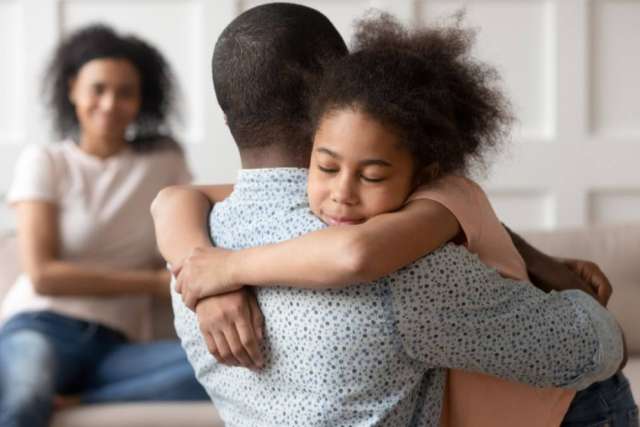In the wake of the mass shooting at Robb Elementary School in Uvalde, Texas, which took the lives of at least 19 children and two teachers on May 24, many parents around the country are left wondering how to help their own children process the tragedy.
Before talking to their children, parents need to take a moment to reflect on the event and what it means for them and their family, said Melissa Brymer, PhD, director of terrorism and disaster programs at the UCLA-Duke National Center for Child Traumatic Stress.
“For some, they may have experienced other violence or a recent death due to COVID, so they need a moment to figure out how this is triggering them,” Dr. Brymer said.
“I think it’s important to take that moment to process – talk it out with a partner, a loved one, or a friend, even to figure out what words to use and to get our initial reactions out before we start talking to our kids.”
Once the timing is right, Dr. Brymer said, it’s important for parents to initiate those conversations.
Children may hear about the news, they might see things online, or they might overhear adults in conversation about the incident. Dr. Brymer said it’s important for parents to find out what their children have heard, what they know, and to correct any misinformation.
Talking to younger kids
For younger children, who may worry about their own safety and that of their family, she said, the talks will be shorter.
“We need to reassure them that they are safe,” Dr. Brymer said. “Sometimes we have to have that conversation multiple times. They can only handle small chunks at a time.”
Talking to adolescents
When it comes to speaking with adolescents, the conversation could lean more toward talking about whether they have safety concerns at school and the social and political issues related to the shooting.
“It might tap into family values,” Dr. Brymer said. “What does this mean for our family? Were there certain identities affected by this event?”
The fact that most of the victims of the Texas shooting were Latino might particularly resonate among other Latino families – especially in the shadow of the pandemic, which disproportionately affected those communities.
“We have so many families in L.A. that have lost a caregiver to COVID and it’s important to acknowledge the grief aspects,” she said. “Seeing the images of those who died in Texas may cause people to think about the recent deaths.”
Talking to teens
When speaking with teenagers, it’s important to ask about what they may have seen on social media, Dr. Brymer said. Have they seen videos or other disturbing content?
“Acknowledge that feeling a little vulnerable is expected,” she said. “You may want to review what your kids' school does to address safety. What have they been doing?’”

Dr. Brymer said some older children may want to talk about change, and how they can contribute.
“What are things that families can start with – are there organization they might want to volunteer with in L.A.? School clubs or initiatives? So they can make the differences they are wanting right now. As a family, talking about what are those issues and things that we can do for change may be helpful.”
Moving forward
If a child asks if violence such as that which occurred in Texas will happen again, it’s important to answer honestly, Dr. Brymer said.
“We can’t tell them no because that wouldn’t be truthful,” she said. “We then have to tap into what we can do to be part of the change. Are there things at their school – is there bullying or a lack of security – and is there something we can do to address those issues? Focus on those things that we can control.”
For instance, she said, family members could commit to reaching out to others who might be having a hard time, due to the pandemic or other issues.
“It helps them and it also helps us.”
Resources
- Tips, in English and Spanish, for helping school-age children cope with traumatic grief, from The National Child Traumatic Stress Network
- Tips, in English and Spanish, for helping adults cope, from the The National Child Traumatic Stress Network



